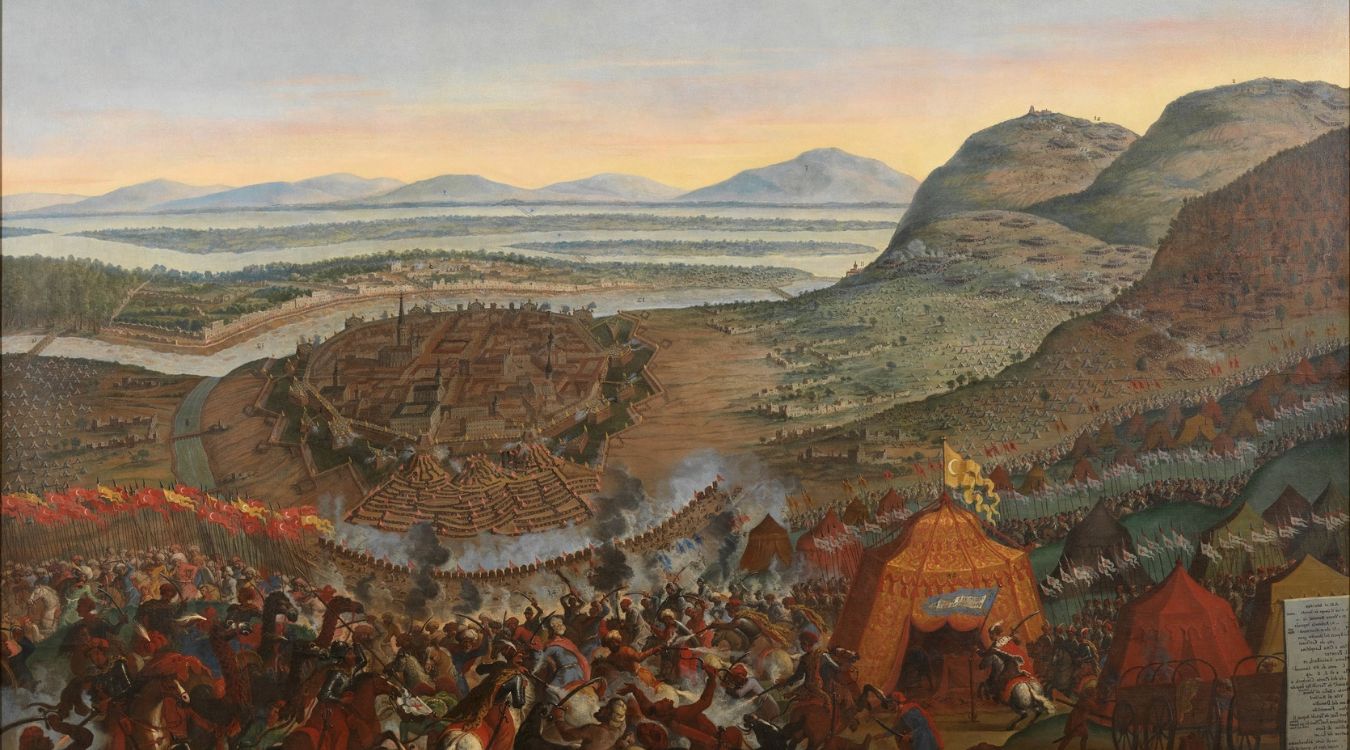
Jerusalem is a city that blends ancient history with modern vibrancy. Founded as the City of David in 1010 BCE, it has seen over 40 conquests and more than 100 battles. This city is a cornerstone of Judaism, mentioned over 900 times in the Hebrew Bible and central to Jewish prayers and holidays. Today, Jerusalem is not just a spiritual hub but also a high-tech powerhouse, recognized as one of the world’s fastest-growing tech hubs. With over 3.5 million tourists annually, it hosts numerous festivals, boasts world-class hospitals, and offers a rich tapestry of cultural and religious diversity.
Key Takeaways:
- Jerusalem, an ancient city with over 40 conquests and 100 battles, holds deep religious significance for Jews and is a hub for high-tech innovation and cultural diversity.
- Despite its ancient roots, Jerusalem continues to grow with 3.5 million tourists annually, rapid high-tech growth, and a thriving arts scene, while facing economic challenges and environmental concerns.
History of Jerusalem
Jerusalem's history is rich and complex, spanning thousands of years. Here are some key historical facts about this ancient city.
- Founding of Jerusalem: The city was founded as the City of David in 1010 BCE, but evidence of settlements dates back to 4500 BCE.
- Biblical Mention: The first mention of Jerusalem isn't in the Bible but in the Execration Texts from Egypt, written 3,800 years ago.
- Conquests: Jerusalem has been conquered over 40 times by various empires, including the Persians, Romans, Ottoman Turks, and British Empire.
- Battles Fought: More than 100 battles have been fought for control of Jerusalem throughout its history.
- First Temple: Built in the mid-10th century BCE, the First Temple required 150,000 workers to construct.
- Second Temple: Constructed in the 6th century BCE, the Second Temple stood until 70 CE.
Jerusalem and Judaism
Jerusalem holds immense significance in Judaism, deeply embedded in religious practices and beliefs.
- Mention in Jewish Practice: Jerusalem is integral to Jewish practice, mentioned during holidays, funerals, weddings, and daily prayers.
- Direction of Prayer: Jews face Jerusalem, specifically the site of the Temple, during prayer.
- Western Wall: Over a million notes are placed in the Western Wall annually. These notes are collected and buried.
- Hebrew Bible: Jerusalem is named more than 900 times in the Hebrew Bible.
- Passover Seders: The word "Jerusalem" is the last word said during Passover seders.
- Religious Identification: A third of Jews identify as ultra-Orthodox, while 36% consider themselves "not very religious" or secular.
- Largest Ethnic Group: Jews became the largest ethnic group in Jerusalem in 1840 and have remained so ever since.
About the City
Jerusalem is a city of contrasts, blending ancient traditions with modern advancements.
- Walled City: Jerusalem is a walled city, with its walls dating back to ancient times.
- Places of Worship: The city has over 50 Christian churches, 33 Muslim mosques, and 300 Jewish synagogues.
- Knesset: Israel’s legislative body, the Knesset, is located in Jerusalem, named after the Great Assembly convened there in the 5th century BCE.
- High-Tech Hub: Named one of the world’s fastest-growing high-tech hubs in 2015.
- Massachusetts Start-Up Accelerator: MassChallenge, a Massachusetts start-up accelerator, opened an office in Jerusalem in 2016.
- Light Rail System: Completed in 2011, Jerusalem’s light rail system can accommodate 23,000 passengers an hour.
- Emergency Response Teams: Emergency response teams on bikes are particularly helpful in the Old City’s narrow streets.
- Hadassah Hospital: The first to perform computer-guided hip replacement surgery.
- Annual Festivals: Hosts more than 30 annual festivals, from opera to film and books to wine tasting.
- Notable Residents: Includes novelist Amos Oz, screenwriter Gideon Raff, and Oscar winner Natalie Portman, who was born there.
- Basketball Team: NBA star Amar’e Stoudemire joined Jerusalem’s pro basketball team in 2016, leading them to win the Israeli championship.
- Best Hummus: Abu Shukri is known for (arguably) the best hummus in Jerusalem.
- Pride Parade: Hosts Israel’s second-largest Pride parade, drawing over 25,000 marchers.
- Kippah Shops: Kippah shops are abundant, offering kippot decorated for every occasion.
- Jerusalem Syndrome: An episode of The Simpsons focuses on the "Jerusalem syndrome," a group of mental phenomena.
Modern-Day Developments
Despite its ancient roots, Jerusalem is a city that continues to grow and evolve.
- Tourism: Attracts more than 3.5 million tourists annually.
- Yom Yerushalayim: A national holiday celebrating the reunification of Jerusalem, marking its 50th anniversary this year.
- 50-Year Jubilee: Commemorates the milestone with a list of 50 interesting facts about the city.
- High-Tech Growth: Known for its rapid high-tech growth, becoming a hub for start-ups and innovation.
- Cultural Events: Hosts numerous cultural events, including festivals, concerts, and exhibitions.
- Educational Institutions: Home to prestigious institutions like the Hebrew University of Jerusalem and the Jerusalem College of Technology.
- Healthcare: Houses world-class hospitals like Hadassah Medical Center and Shaare Zedek Medical Center.
- Economic Growth: The economy is growing rapidly, driven by high-tech, tourism, and healthcare sectors.
- Infrastructure Development: Expanding infrastructure includes the light rail system and new residential areas.
- Cultural Diversity: A culturally diverse city with a thriving arts scene, museums, galleries, and performance venues.
- Historical Sites: Home to numerous historical sites like the Western Wall, Church of the Holy Sepulchre, and Dome of the Rock.
- Archaeological Discoveries: Excavations have uncovered ancient artifacts and structures, providing insights into the city’s history.
- Educational Programs: Offers various educational programs focusing on Jewish heritage, history, and modern subjects like science and technology.
- Community Engagement: Residents actively engage in community activities, including volunteer work and cultural events.
- International Recognition: Designated a UNESCO World Heritage Site, recognized for its cultural and historical significance.
- Economic Challenges: Faces economic challenges like housing poverty and unemployment, addressed through various initiatives.
- Environmental Concerns: Efforts are being made to reduce waste, promote sustainable practices, and protect natural resources.
- Tourism Infrastructure: Developing tourism infrastructure with new hotels, restaurants, and attractions.
- Cultural Exchange Programs: Participates in cultural exchange programs with cities worldwide, promoting understanding and cooperation.
- Historical Preservation: Committed to preserving historical sites and artifacts, restoring ancient buildings, and protecting cultural heritage.
- Educational Collaboration: Collaborates with global educational institutions to promote knowledge sharing and academic excellence.
- Community Development: Focuses on community development, ensuring access to healthcare, education, and social welfare through various programs.
Jerusalem: A Blend of History and Modernity
Jerusalem stands as a city where ancient history meets modern innovation. From its founding as the City of David in 1010 BCE to its current status as a high-tech hub, Jerusalem has seen it all. The city is rich in religious significance, especially in Judaism, with landmarks like the Western Wall and the Temple Mount. It's also a cultural melting pot, hosting numerous festivals and boasting a diverse population. Modern developments like the light rail system and high-tech growth show Jerusalem's forward-thinking spirit. Despite challenges like economic issues and environmental concerns, the city continues to thrive. With its blend of historical sites, cultural events, and modern amenities, Jerusalem remains a fascinating place to explore. Whether you're interested in its ancient past or its vibrant present, Jerusalem offers something for everyone.
Frequently Asked Questions
Was this page helpful?
Our commitment to delivering trustworthy and engaging content is at the heart of what we do. Each fact on our site is contributed by real users like you, bringing a wealth of diverse insights and information. To ensure the highest standards of accuracy and reliability, our dedicated editors meticulously review each submission. This process guarantees that the facts we share are not only fascinating but also credible. Trust in our commitment to quality and authenticity as you explore and learn with us.


